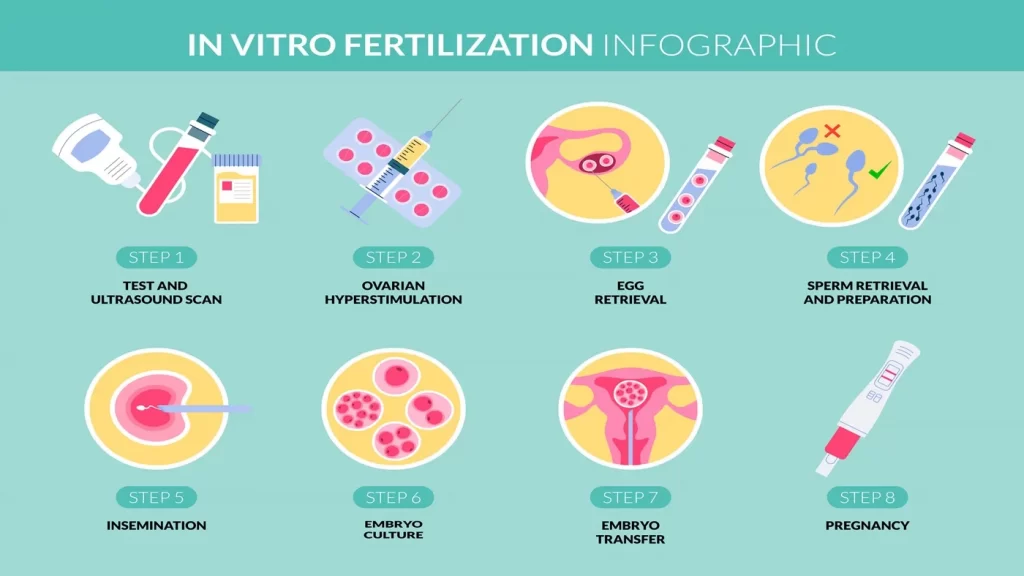
For individuals and couples facing fertility challenges, the decision between Intrauterine Insemination (IUI) and In-Vitro Fertilization (IVF) can be a pivotal one. Both are widely used fertility treatments, but they differ significantly in terms of procedure, success rates, and cost. In this guide, we’ll explore the factors that can help you determine which option may be right for you.
Understanding IUI:
Intrauterine Insemination (IUI), often stated as artificial insemination, treatment for fertility that involves insertion of sperm directly into a woman uterus during her fertile window. This procedure will increase the probabilities of fertilization by reducing the distance sperm need to travel to meet the egg.
Is IUI Right for You?
IUI may be a suitable option if:
- Mild Male Infertility: IUI can help in cases of mild male infertility where the sperm count or motility is slightly below average.
- Unexplained Infertility: When the reason of infertility remains unknown after thorough testing, IUI may be recommended as an initial treatment.
- Cervical Issues: IUI can bypass cervical mucus problems, making it easier for sperm to reach the uterus.
- Donor Sperm: For individuals or couples using donor sperm, IUI is a common method for achieving pregnancy.
Understanding IVF:
In-Vitro Fertilization (IVF) is a more complex fertility treatment involving the recovery of eggs from the ovaries, fertilize of the eggs in a laboratory dish, and the transfer of resulting embryos into the uterus. IVF is often recommended for individuals or couples with more severe fertility issues.
Is IVF Right for You?
IVF may be a suitable option if:
- Blocked Fallopian Tubes: IVF is often recommended for individuals with blocked or damaged fallopian tubes, as it bypasses the need for the tubes to be functional.
- Advanced Maternal Age: For women over 35 or those with age-related fertility decline, higher chance of success through IVF procedure by selecting the best-quality embryos.
- Male Infertility: In cases of male infertility, such as poor sperm motility or low sperm count, IVF with Intracytoplasmic Sperm Injection (ICSI) can be used.
- Endometriosis or Polycystic Ovary Syndrome (PCOS): IVF may be recommended when these conditions are present.
- Unsuccessful IUI Attempts: If multiple IUI attempts have been unsuccessful, IVF may be the next step.
Factors to Consider:
- Cost: IUI is generally more affordable than IVF. It involves fewer procedures and medications, making it a more accessible option for some.
- Success Rates: IVF typically has higher success rates compared to IUI, especially in cases of severe fertility challenges.
- Emotional and Physical Impact: IVF can be emotionally and physically demanding due to its more complex nature, whereas IUI is less invasive and often considered less stressful.
- Multiple Births: IVF carries a higher risk of multiple pregnancies, which may be a factor to consider.
FAQs About IUI and IVF:
- Can I choose IUI if my partner has severe male infertility?
- In cases of severe male infertility, IUI may not be the most effective option. IVF with ICSI, where a single sperm is directly injected into an egg, is often recommended for severe male infertility.
- Is IVF more painful than IUI?
- Both IVF and IUI procedures are generally well-tolerated and considered minimally invasive. Any discomfort is usually mild and short-lived.
- Can I undergo multiple rounds of IUI before considering IVF?
- Yes, you can undergo multiple IUI cycles before considering IVF. The number of cycles recommended will depend on your specific situation and the advice of your fertility specialist.
In conclusion, the decision between IUI and IVF is a highly individual one and should be made in consultation with a fertility specialist. Factors that are underlying cause of infertility, cost considerations, and emotional readiness all play a crucial role in determining which treatment option is the best fit for you. Remember that both IUI and IVF procedure helped many individuals and couples complete their dream of parenthood, and with the right guidance, you can make an choice that make with your unique conditions and goals.